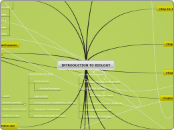INTRODUCTION TO BIOLOGY
Chap 12: Cell Cycle and regulation.
Prophase
Prometaphase
Metaphase
Anaphase
Telophase
Cytokinesis
Chap 18: Recombinant DNA
Gene Cloning
Restriction endonuclease
Bacteria Plasmid
Recongnition and marker ganes.
Sticky ends
Chap 10: Photosynthesis
Sites of Photosyntheis in plants
Redox Process
Dark and light Reactions
Absorption Spectrum
Cyclic Electron Flow
Chapter 9: Respiration
Oxidation and Reduction
Krebs Cycle
Electron transport and Chemiosmosis
Chapter 18: Gene Regulation
Operons
Trp and LAC operons
Negative: Repressible and Inducible Operons
Positive: Glucose Effect
Chapter 17: Mutations and Repair
Nucleotide pair substitution
missense mutation
Nonsense mutation
Frameshift mutation
Spontaneous mutations.
Chapter 17: Transcription/Translation
Central Dogma
Template/Coding strand
Exons/Introns/Splicing
Protein targeting
Chapter 16: DNA Replication, discovery as a genetic material.
Griffith, Avery, Mccleod&MCcarthy, Hershey&Chase
ORIGINS of Replication, replication fork, SSB, Topoisomerase, DNA Pl I & III
Chap1: Biological Hierachy
Atoms
Levels of Biological Organization
Molecule
Cells
Tissues
Organs
Organism
Population
Communities
Domains and KIngdoms
System, emergent properties, Reductionism
Chap2&3: Chemistry for Biology
Bonds and water
Four emergent properties of water
Atomic Mass, Atomic #
Polarity Of water
Polar , Non Polar, Covalent, Ionic bonds
Chap4&5: Biological molecules
Carbon and Molecular diversity
Isomers
Functional groups For ex. carboxyl
four ways that carbon skelton can vary
Length
Branch/unbranched
Subtopic
Position of double bonds
presence of rings
Carbohydrates and Lipids
startch/glucose
Amylose/Amylopectin
sugar-sucrose
Human(glycogen), Plants(starch), Cellulose
Triglyceride--Phospholipids
saturated/unsaturated fatty acid
Amino acids and Proteins
Amino acid structure, Building blocks
Dehydration synthesis
Acidic/basic polar heads
Primary, seconday, Tertiary, Quaternary
DNA and synthesis of MRNA
Nucleosides and Nucloetide
Chap 25&27: Chemical evlution and Prokayotic cells
Oparin's Bubble Hypothesis
Membrane Fluidity
Peripheral & Integral Membrane Proteins
Chapter 6: Eukaroyotic Cells
Types of Microscopes
Internal membranes and compartmentalization
Differenentiate betwwen Animal and plant cells
Chapter 11: Cell signaling & Signal transduction
Cell Communcation
Signal Transduction
Response
"Signal transduction pathway"
